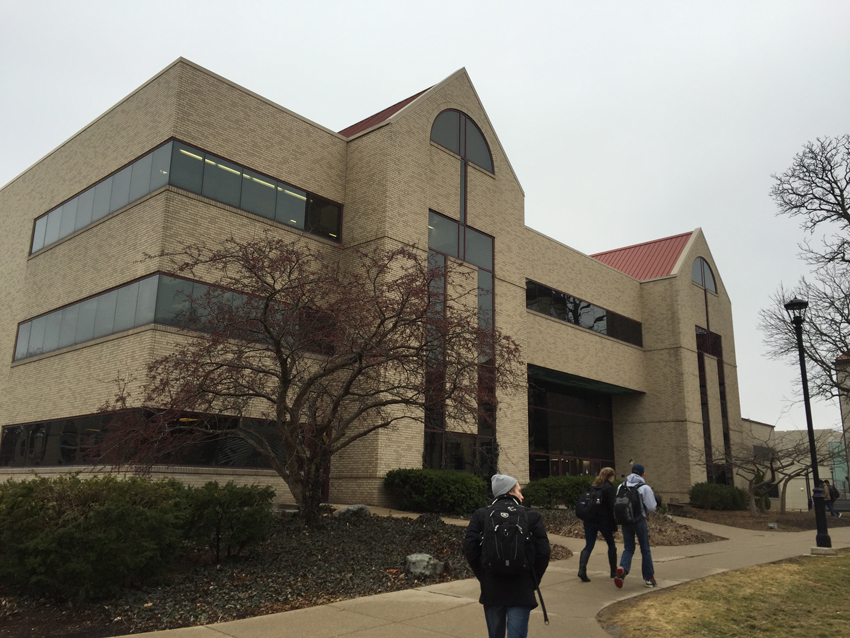
The pandemic has affected everyone in some way. Whether it be something small like a few online classes or something more long-lasting like the loss of a family member, this past year has left no one untouched.
This very thing is what drove Atticus Garrison, the music resource coordinator in the Cullom-Davis Library, to create an oral history archive of the Bradley community.
Garrison, alongside assistant history professor Libby Tronnes and a small group of students, have been working to put together a collection of interviews with students, faculty, athletes, food service workers, university leaders, alumni and community members.
Tronnes feels that hearing from people outside of Bradley is just as important as hearing from people within because they are all connected in some way. This archive will give people an idea of what the environment of a pandemic was like for years to come.
“I think this is going to be something that will be used by future historical researchers,” Garrison said. “It will give people in the future an idea of what it was like.”
The weekly Zoom meetings consist of discussing the best ways to conduct a quality interview, ethics surrounding journalism and strategies to get comfortable talking to people about what could be a very traumatic time in their lives.
“They will be talking to a lot of people,” Tronnes said in reference to the work the students conducting interviews will be doing. “They’re gonna be practicing humility and emotional generosity.”
Eventually, the students will begin interviewing willing participants. The main goal for the group is to get a well-rounded, broad documentation of what Bradley has experienced and how people have been affected this past year.
“I’m gonna be pushing students to interview particular people who are representative of smaller communities around campus and Peoria if I don’t already see their voices present,” Tronnes said. “I want to make sure this is inclusive.”
Choosing spoken word documentation was easy for Garrison because it’s the only kind of source that the researcher can get an answer back from.
“With a personal diary, if you had a question about what they were talking about, you couldn’t follow up and ask what they meant,” Garrison said.
Tronnes is passionate about the need for oral documentation because a person can miss a lot when they aren’t hearing stories directly from the source.
“There’s so much in the way people tell stories that [are] packed full of meaning that you don’t get with written word,” Tronnes said. “Their pauses, their tonation, their inflections, their dialects, the way they speed up and slow down … you’re missing out on a lot of emotion.”
Another benefit of oral history, as Tronnes describes, is its ability to be transcribed in the future. Students, historians and anyone else who is interested will be able to transfer these interviews onto a variety of platforms like podcasts, essays and newspaper articles to make them even more widely accessible for years to come.
To her knowledge, this is the first oral history project in Bradley’s archives.
“At the end of the day, we’re using our power and our privilege to get other people to share their stories,” Tronnes said. “And to me, that’s the mission of higher [education].”
Once completed, this COVID-19 oral history project can be found in the special collections area of the Cullom-Davis Library. Anyone looking to assist with the project or contribute a story of their own is asked to contact Libby Tronnes (ltronnes@fsmail.bradley.edu).

